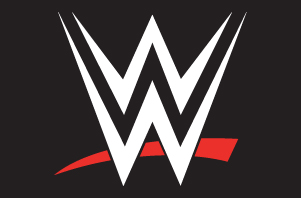 WWE.com recently posted an interview with Don Callis, formerly known as The Jackyl in WWE and Cyrus The Virus in ECW.
WWE.com recently posted an interview with Don Callis, formerly known as The Jackyl in WWE and Cyrus The Virus in ECW.
Former ECW announcing partner and current WWE.com employee Joey Styles conducted the interview with Callis, who was on hand for Chris Jericho’s 25th wrestling anniversary celebration at the WWE MSG live event. Callis talks about how he got to WWE and who helped him, transitioning to ECW, his favorite moments, how he wants to be remembered by fans, and more. You can read a few excerpts below:
How he got to WWE:
In 1996, I was brought in to WWE for a tryout as a wrestler. I wrestled Barry Horowitz the first night and Aldo Montoya, who went on to become Justin Credible, the second night. Those were good matches. Then I had a TV match with Marc Mero that was only three minutes long because he was late getting to the arena. Not to say anything bad about someone, but I’m glad it was only three minutes because he was a crowbar. It was like locking up with a bag of boards. Brutal.
I ended up getting signed to a deal by WWE a year later for a tag team with Rick Martel called The Supermodels. Rick decided he wanted to go to WCW, but I still wanted to come to WWE, so Bret Hart helped me get signed alone.
Favorite moment:
The first time I superkicked Joel Gertner on a pay-per-view. The fans didn’t expect it. [Cyrus] was the mouthpiece of the oppressive television network that was stifling ECW. I had been a bully with the power of the network behind me, but ECW fans didn’t know that I could wrestle.
I tried not to bring that character into the announce booth, though, because my job there was to promote the wrestlers, not myself. One of the best things that ever happened to me was after the first pay-per-view I called with you. Sabu came up to me and said, “I really like what you said about me and my match.” I thought, “Wow. This is the best job because you have to get everyone else over instead of just working at getting yourself over.”
How he got into a government job after wrestling:
It was a weird road. When ECW went out of business I just thought that I’d go to WCW. Eric Bischoff was going to buy the company and talked to me about announcing Monday Nitro with you. I thought, “This is going to be great! I get to work with you having fun while working for a secure company.” Bischoff’s deal fell apart and just like that, wrestling was over for me.
I thought, “I’m going to need to make a career change.” I went back to school and got my MBA, which was a head trip because I had to re-take a few undergrad courses and was in class with 18-year-old kids who had just watched me on ECW. They asked, “What are you doing here?” It really brought me down to earth, so to speak.
I have to give you some credit because, when I got my first job out of school working for the City of Winnipeg, you were one of my references while you were working for a media company here in New York. You said, “If Don wasn’t such a loyal Winnipegger, I’d have him here working for me in New York.” New York is a big deal in Winnipeg. I also got a letter of reference from Tommy Dreamer, but it was on ECW letterhead with blood dripping from the logo so I couldn’t use it.
What does he want to be most remembered for?
My time in ECW. Paul Heyman was fantastic to me. He let me go out there and flourish on my own. I’ll always remember that Paul was a coach as much as a boss. Working with Paul to start a near riot at the Manhattan Center here in New York was old school, white-hot heat. For me, that was the highlight.
My best creative work was done in WWE when I was given a gimmick that was doomed to failure and changed it within the WWE system to make it work. As a new guy, how great is it to work with Legends like Pat Patterson and all the producers that work backstage here? By the way, how much do I get paid for this interview?





